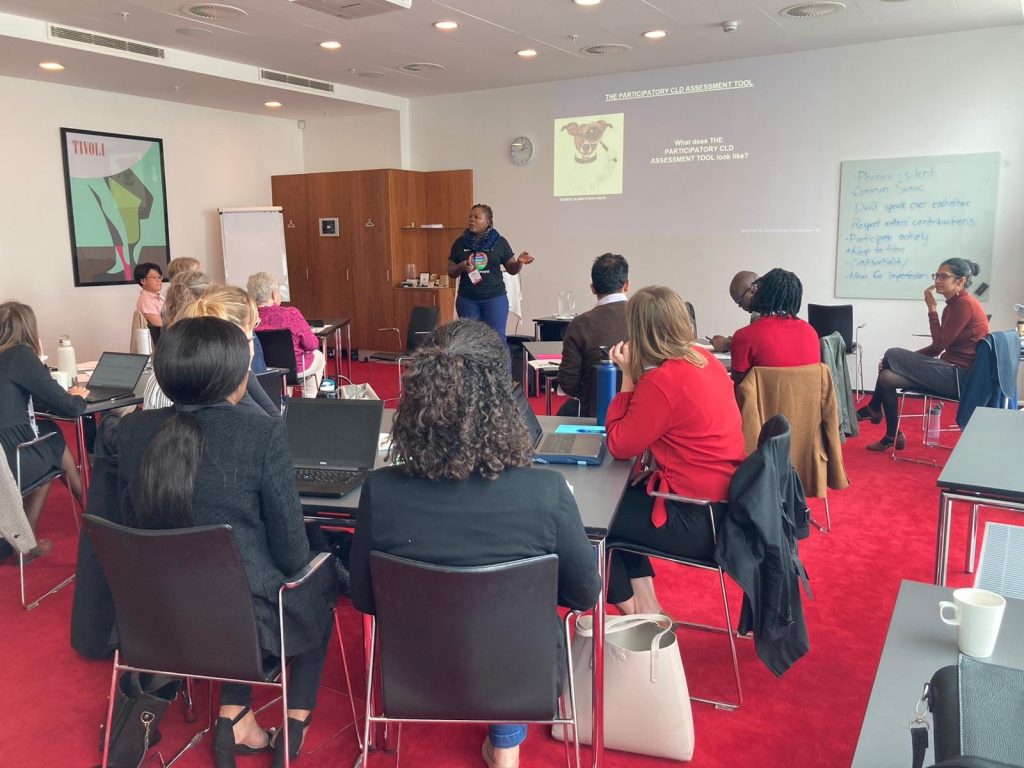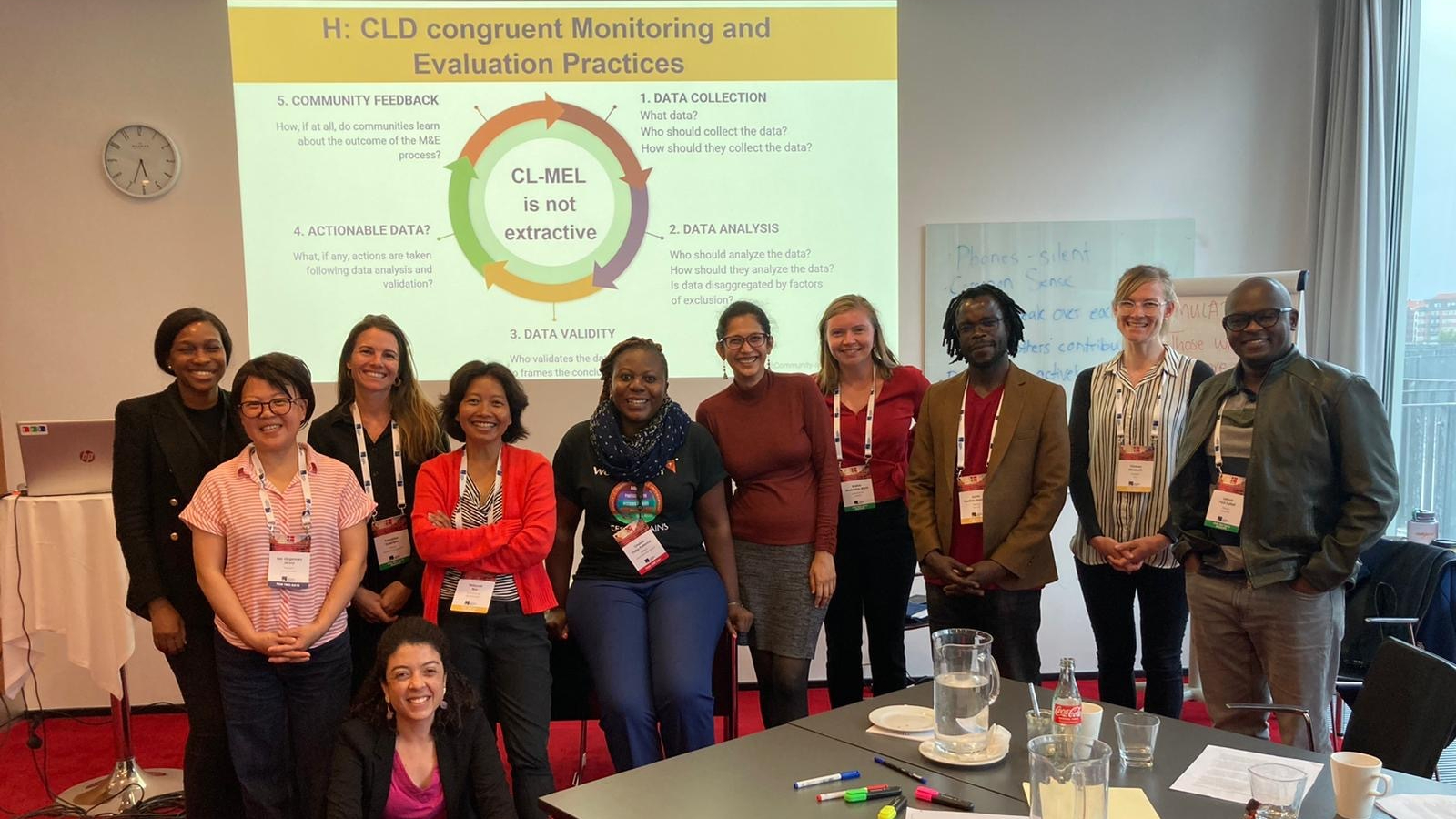To #ShiftThePower in international development, we need to ensure data is by the people, of the people, and for the people. For too long our monitoring and evaluation systems have been extractive processes, designed to fill out reports for development partners (aka funders). As we re-examine what monitoring and evaluation should look like in the service of communities, the time has come to move from extractive to accessible systems that measure what matters, not just to funders but to the communities themselves, and that convey this information back to them.
In our ongoing quest to transform evaluations, members of the Movement for Community-led Development hosted three sessions at the European Evaluation Society Conference in Copenhagen this June. Together, Gunjan Veda (Movement for Community-Led Development), Molly Wright (Pact), and Trisha Chalulu (World Vision) conducted a Think Tank, Tools Session, and Professional Development Workshop, all focused on strengthening the practice of community-led development and community-led monitoring and evaluation.

We began MCLD’s maiden EES journey with a full-day professional development workshop on June 7, focused on Community-led Monitoring and Evaluation: Principles and Tools. Over the course of seven hours, participants from different parts of the world worked with the MCLD team to arrive at a shared understanding of what CLD looks like in practice and how M&E processes can become more CLD congruent. The workshop focussed on the two tools that have been collaboratively developed by the MCLD Research team: The Participatory CLD Assessment Tool and the Quality Appraisal Tool for CLD Evaluations.
Through intense discussions, participatory exercises, simulations, and small group work, participants analyzed what a CLD program would look like and designed a ToR and evaluation for those programs. Among other issues, participants discussed the relevance of CLD in humanitarian situations, the burden of work placed by CLD on communities, particularly women, and the barriers to making M7E CLD congruent. The workshop ended with a commitment mural where all participants shared their commitment to making M&E more CLD congruent. Our team came back with new ideas, new understandings, and new friends of the Movement.
On June 8, we conducted a shorter 90-minute tools session titled In search of equity: Two Tools for Centering Community Voice in Evaluative Practice. Through this session, we once again introduced our two collaboratively developed tools, this time with a focus on equity. We walked through the Participatory CLD Assessment Tool and Quality Appraisal Tool, demonstrated examples of their use in centering community voices, and talked about what “quality” evaluations might look like in different contexts.
Finally, we closed EES with a think tank on June 10, Illuminating the Global Practice of CLD: Do we practice what we preach? In this session, we shared the results of our landscape study of 173 CLD programs from 65 countries and sought to examine whether our words, actions, and most importantly evaluations reflect the principles we stand for? We engaged with debates in the field of CLD and discussed methods and methodologies for assessing the quality of participation and facilitation.
Don’t miss this interview with Gunjan Veda:


